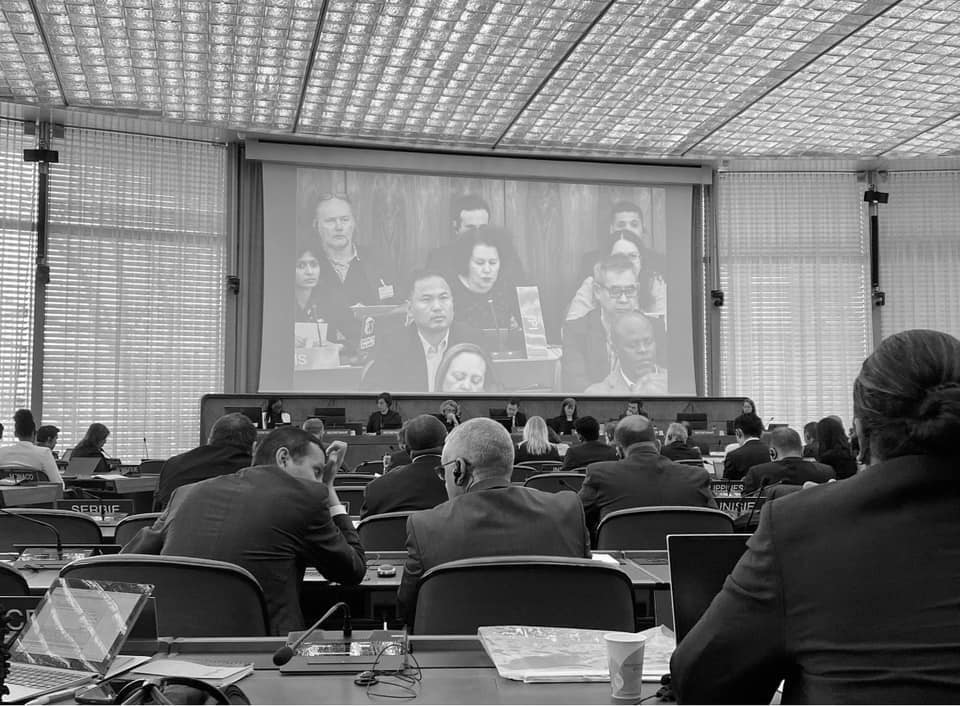Success of the 43rd Session of the SCCR
The 43rd session of the WIPO Standing Committee on Copyright and Related Rights (hereinafter SCCR) made substantial progress on the issues advocated by the A2K Coalition (Access to Knowledge Coalition), which IPI, a sister institute to ODIPI, is a member of. This year’s session was the most productive on the issues of exceptions and limitations. James Love (Knowledge Ecology International), a long-time observer at WIPO, described the outcome and the impact of the public interest community as the strongest since the conclusion of the Marrakech Treaty, which brought global copyright exceptions for the benefit of the blind and visually impaired.
Among the highlights of the session were the adoption of the Programe on exceptions and limitations, progress on the exceptions and limitations clause in the draft for the Broadcasting Treaty and the revival of the second meeting of the SCCR. This progress was partly driven by changes in the representation of Brazil, Chile, Colombia and Argentina, as well as by continued expertise and leadership within the African Group.
Exceptions and Limitations: Programe (Proposal by the African Group for a Draft Work Programe on Exceptions and Limitations)
The SCCR adopted the new Programe on exceptions and limitations proposed by the African Group.
According to the A2K Coalition, the Program proposed by the African Group establishes a solid framework for building on the work on copyright exceptions and limitations that has been done in the past by the SCCR, as well as for further discussion on exceptions and limitations for libraries, archives, educational and research institutions, and for making accessible to persons with disabilities. As dr. Maja Bogataj Jančič stated on behalf of IPI: “Exceptions and limitations are not tools to take sth. away, but a way forward to design a balanced system that will work for common good. The African proposal shows the right way forward”.
The Programe calls for the SCCR focus future work on “priority issues” including:
- to promote the adaptation of exceptions to ensure that laws at the national level enable the preservation activities of libraries, archives, and museums, including the use of preserved materials;
- to promote the adaptation of exceptions to the online environment, such as by permitting teaching, learning and research through digital and online tools; and
- to review implementation of the Marrakesh Treaty and how to ensure that people with other disabilities (also covered by the Convention on the Rights of Persons with Disabilities) can benefit from similar protections, in particular in order to benefit from new technologies.
The Toolkit on Preservation was also presented at the session and was welcomed by representatives of libraries, archives and museums as it presents the possibility of an exception for preservation, including more open and flexible models for national implementation. One of the advantages of the toolkit is that it has been prepared by external experts and thus represents an objective analysis of options. Although the toolkit was strongly criticized at the meeting by the International Publishers Association, this probably indicates its usefulness to users.
Exceptions and Limitations: the Broadcasting Treaty
An improved provision on exceptions and limitations was presented at the session, but not welcomed by Member States and observers. The Chair agreed to reword the provision to make it clear that the exceptions are listed only by way of example and that this allows Member States to freely adopt additional exceptions. As dr. Maja Bogataj Jančič stated on behalf of IPI: “if it is a joint and agreed decision that such new rights are necessary to achieve sustainable development such new rights shall and must be balanced with harmonized and mandatory copyright exceptions and limitations to achieve common good and common progress”. In this spirit, the A2K Coalition has proposed a stronger model that would ensure, through mandatory exceptions, that all copyright exceptions are extended to potential new and existing broadcasting rights.
Second Meeting of the SCCR
The SCCR agreed to insist on a second session this year, which will be shortened to 3 days, starting on November 6, 2023. This will be the next opportunity to form working groups on exemptions and restrictions and to discuss the next steps following the adopted Programe.
On December 3, 2024, the “Knowledge Rights 21 Regional Alliance – Network of Librarians and Copyright Experts from Central and Southeastern Europe”, was officially established at a meeting hosted at the Four Points by Sheraton Ljubljana Hotel. The event was organized by Open Data and Intellectual Property Institute ODIPI and chaired by Dr. Maja Bogataj Jančič.
Recordings and presentations from all speakers at the ERA KR21 Conference Slovenia are now available on the subpage “Recordings and PPTs of Presentations by Speakers”.
Open Data and Intellectual Property Institute ODIPI invites you to a discussion organized by the European Commission Representation in Slovenia titled “Democracy in the Grip of Disinformation: What Can the EU Do?”. The event will take place on Friday, December 13, 2024, from 11:00 to 12:30 at the House of the EU in Ljubljana, Slovenia and online.
Open Data and Intellectual Property Institute ODIPI organized the ERA KR21 Conference Slovenia on December 2, 2024, with the support of the Ministry of Higher Education, Science, and Innovation of the Republic of Slovenia and the Knowledge Rights 21 (KR21) program. The Conference focused on addressing the most pressing issues in copyright regulation in the fields of science and Open Science within the European Union (EU), with particular emphasis on barriers and incentives for Open Science in copyright law. The event represented the contribution of the Government of the Republic of Slovenia to implementing European Research Area (ERA) Policy Agenda Action 2, which focuses on creating a supportive EU legislative framework for copyright and data governance.





